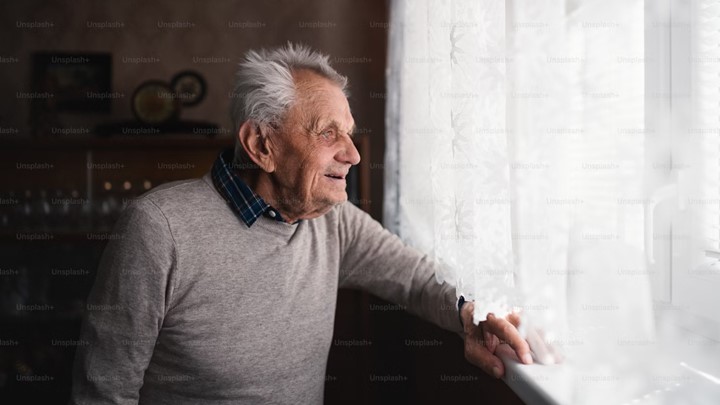In the elderly, one of the major issues is falls which may cause severe injuries, disability, and even death. It is significant to note that falls are the second largest cause of unintentional injury deaths globally according to the World Health Organization (WHO) with the majority of these cases occurring among older adults.
In Africa (or Nigeria specifically), which has a rapidly aging population, falls among elderly people are increasingly becoming an important public health concern. This blog will focus on how to prevent falls in elderly and how to prevent them.
Falls can greatly affect older people’s quality of life, causing bodily damage and emotional trauma in addition to taking away their freedom and independence. Furthermore, accidents also have significant economic implications for families and the healthcare system.
Risks of Falls in the Elderly
-
Age: The risk of falls increases with age, especially after the age of 65
-
Gender: Women are more likely to fall than men, especially after the age of 75
-
Chronic medical conditions: Conditions such as diabetes, arthritis, and heart disease can increase the risk of falls
-
Medications: Certain medications can cause dizziness or drowsiness, increasing the risk of falls
-
Environmental hazards: Tripping hazards, poor lighting, and slippery floors can increase the risk of falls
How to Prevent Falls in Elderly
Preventing falls in the elderly requires a proactive approach that includes lifestyle changes, home modifications, and regular health assessments.
1. Regular Health Check-Ups
- Vision and Hearing Tests: Regular screening can help address issues that affect balance and coordination.
- Medication Reviews: Regularly review medications with healthcare providers to identify and minimize side effects.
- Bone Health: Assess bone density and consider supplements or medications to strengthen bones.
2. Physical Activity and Exercise
- Strength Training: Exercises that build muscle strength and improve balance are crucial.
- Flexibility Exercises: Stretching can improve mobility and reduce stiffness.
- Balance Exercises: Tai Chi and yoga effectively enhance balance and coordination.
3. Home Safety Modifications
- Lighting: Ensure adequate lighting throughout the home, especially in hallways and staircases.
- Remove Hazards: Keep pathways clear of clutter and secure loose rugs.
- Install Safety Devices: Handrails, grab bars, and non-slip mats in bathrooms can prevent falls.
4. Assistive Devices
- Canes and Walkers: These can provide stability and support for those with balance issues.
- Proper Footwear: Shoes with non-slip soles and good support can prevent slips and trips.
5. Nutrition and Hydration
- Balanced Diet: Ensure a diet rich in calcium and vitamin D to support bone health.
- Hydration: Proper hydration can prevent dizziness and fainting spells.
Thus measures must be instituted to prevent falls among seniors and recognize signs after they occur including symptoms of recurrent falls, risk factors for repeated falls, and consequences of falling.
Symptoms to Look for After a Fall
After the fall, critically observe if any symptoms might indicate severe injury or underlying conditions in the elderly person. These signs include pain, especially in the head, neck, and spine. The patient can also experience confusion and disorientation.
Dizziness or loss of balance, numbness or tingling in the arms or legs, difficulty walking or standing up straight, bleeding or bruising, and changes in behavior and mood are other important symptoms to watch out for. When any of these signs are present one should make sure they seek medical help urgently.
Causes of Recurrent Falls in Elderly
Recurrent falls among old people may be attributed to a mixture of things including age-related physical changes resulting from chronic medical conditions, and medications taken by them. It can also be due to environmental hazards around them such as poor lighting at night or slippery floors during the winter season which can cause them to fall accidentally.
Another condition can be linked to malnutrition; as well as feelings of loneliness if they have no close friends left alive because most family members died a long time ago. It can also be due to neglect from their loved ones not providing adequate support for them.
Consequences of Falls in the Elderly
The elderly may suffer long-lasting consequences from falling, such as fractures, head trauma, and soft tissue injuries. Such falls may also lead to disabilities like loss of mobility or dependence on ADLs and in certain cases, death especially when a hip fracture or head injury occurs as a result of the fall.
Furthermore, falls may result in emotional disturbances including fear of falling, depression, anxiety, and even loss of freedom and self-governance. Lastly, falls are a significant economic burden on both families and the healthcare system.
Prevention of Falls Among the Elderly
Fortunately, these can be reduced or prevented by combining home safety modifications with exercise programs and medical interventions. For instance, removing tripping hazards, improving lighting conditions as well and installing handrails to encourage exercising programs’ medications review medications, and social support.
In Conclusion
How to prevent falls in elderly is a major public health issue, albeit preventable or reducible through home safety modifications, exercise programs, and medical interventions. By appreciating the dangers of a fall; symptoms to observe after tripping over; reasons for recurrent trips and the impact of these mishaps.
It is important to remember that falls are accidents but require the right methods and approach to be avoided. You may want to check this post on the Importance of Herbal Medicine in Our Daily Life.

